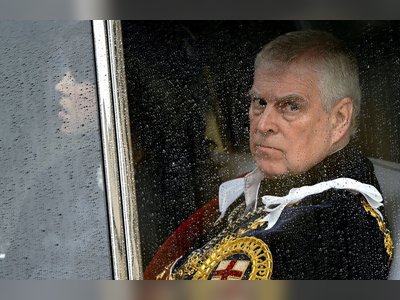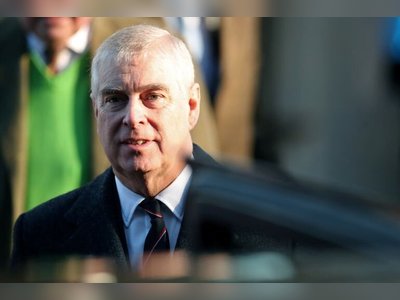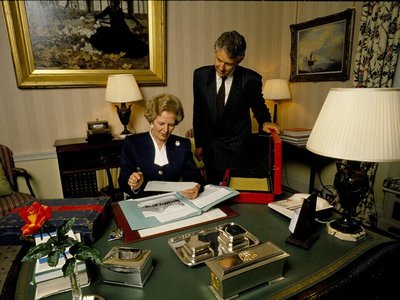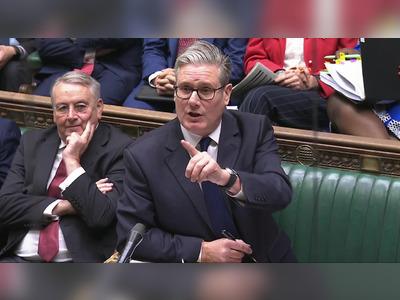Outsider, Heroine, Trailblazer: Diane Keaton Was Always a Little Strange — and Forever One of a Kind
Diane Keaton, the Oscar-winning actress who turned eccentricity into an iconic strength and redefined femininity in Hollywood, has died at the age of seventy-nine, leaving behind a legacy that transformed film, style, and gender roles.
She never fit any cliché — not of beauty, not of femininity, and certainly not of Hollywood.
Diane Keaton, who turned her eccentricity into a strength and her quirks into timeless iconography, shaped a complex and unforgettable female persona that was ahead of its time — from “The Godfather” to “Annie Hall”.
This is a farewell to the legendary actress, who passed away at seventy-nine.
At her core, she was a strange girl — or “a strange girl”.
That was not a subjective opinion or an insult but the official reason director Francis Ford Coppola gave when asked why he cast the then twenty-five-year-old Keaton — with only one film role to her name and a résumé mostly in theater — as Kay Adams in his mafia masterpiece.
Keaton was already known in New York’s acting circles as “The Kooky Actress,” the eccentric one who dated Woody Allen, frequented Manhattan clubs, was willing to appear nude in the groundbreaking Broadway production of “Hair,” and was wildly funny.
Never ordinary, never dull — but also never “one of the gang”.
In “The Godfather,” she played Kay Adams, the fiancée and later wife of Michael Corleone, the mafia heir who swore he was different — only to pull her into his world as he rose to power.
In “Annie Hall,” the role that won her an Oscar, she was the small-town girl reinventing herself in New York with her now-iconic vest, hat, and tie — becoming first Woody Allen’s girlfriend and then his legendary ex.
In “Reds,” she was once again the all-American girl drawn into a world of radical communists led by Warren Beatty.
A shiksa in a world of Jews, a WASP in a world of Italians, and always a woman in a world of men.
Keaton, who died on Saturday at the age of seventy-nine, was an outsider in every sense.
On the one hand, that made her ideal for many Hollywood roles, since the “fish out of water” trope is a staple of screenwriting.
On the other, it also made her a “type” — not a compliment in the eyes of many rigid men in the industry.
She was a clear icon — charming and irresistibly sexy — but she did not conform to the cliché of the American “bimbo” or even the softer “girl next door”.
No, Keaton was entirely Keaton — singular and unmatched.
It’s no coincidence she thrived in the 1970s, a decade after the cultural revolution of the 1960s, when femininity was evolving.
In “Annie Hall,” perhaps her most beloved film, she literally “wears the pants” — borrowing a masculine look while remaining completely female.
Stylish and magnetic, she was also hesitant and insecure from her very first line.
Allen, both her on-screen and real-life partner, tries to “educate” her — enrolling her in college, giving her “deep” books — but she only half-listens, often mocking him.
Eventually, they break up.
If “Annie Hall” had been made in the 2000s, it would be tempting to label Annie as a “Manic Pixie Dream Girl” — the quirky muse who heals a lonely, nerdy man.
But that would be inaccurate: Hall refuses to be Allen’s antidote.
She flies to Los Angeles, becomes someone new, and the film ends with the understanding that she will never belong to him.
She is not there to nurture or complete a man — she is herself.
That model of womanhood defined Keaton both on-screen and as a fashion icon.
Born in Los Angeles in 1946 into a deeply Christian, white, middle-class family, Keaton was drawn to acting despite no family ties to show business.
Her mother once won a “Mrs. California” homemakers’ contest.
Classic star Katharine Hepburn — witty, pants-wearing, and sharp-tongued in 1930s films — was her lifelong inspiration.
After school plays (notably Blanche DuBois in “A Streetcar Named Desire”) and a move to Manhattan, Keaton studied acting and sang in nightclubs — a detail reflected in “Annie Hall” and other films.
Her natural charisma did not go unnoticed, including by a fellow student named Jack Nicholson.
Her breakthrough came in 1968 with the Broadway musical “Hair”.
A year later, she auditioned for a play called “Play It Again, Sam,” written and directed by a young comedian named Woody Allen.
He became her partner for the next three years and her creative collaborator for the next twenty-five.
Although they are remembered as one of Hollywood’s great “power couples,” their romantic relationship lasted only until 1972.
Keaton later dated Al Pacino — their breakup fueled the intensity of their iconic shouting match in “The Godfather Part II” — and Warren Beatty, but she never married.
She adopted two children in 1996 and 2001 and was often called “the shyest star in Hollywood”.
Her creative partnership with Allen was longer and more significant, producing eight films between 1971 and 1993, including American classics like “Manhattan,” “Love and Death,” “Interiors,” and the underrated “Manhattan Murder Mystery,” in which they play a married couple whose investigation rekindles their relationship.
The film followed Allen’s public breakup with Mia Farrow and the explosive allegations surrounding his relationship with Soon-Yi Previn and accusations by Dylan Farrow — claims he denies and that remain unproven.
Through it all, Keaton stood by him, publicly stating, “I continue to believe him,” even when it was fashionable to distance oneself from Allen.
She appeared at tributes, spoke in his defense, and refused to follow Hollywood trends.
After “The Godfather” and her early Allen collaborations, Keaton reached her peak in the 1970s.
“The Godfather Part II” in 1974 — for which she was controversially not nominated for an Oscar — and “Annie Hall” in 1977, which cemented her status as an icon.
That same year, she starred in “Looking for Mr. Goodbar,” widely considered her finest performance, as a schoolteacher exploring sexual freedom in New York.
The film was dark and judgmental toward women’s liberation, but Keaton’s portrayal — strong yet vulnerable, liberated yet longing for love — was deeply nuanced.
The conservative 1980s brought a slowdown, as Hollywood shifted toward aliens instead of complex women, yet Keaton remained beloved.
Her notable roles included “Reds,” “The Little Drummer Girl” (in which she played an anti-Israel actress turned Mossad operative), “Crimes of the Heart,” and “Marvin’s Room,” which earned her another Oscar nomination in 1996 and featured standout performances alongside Meryl Streep, Robert De Niro, and Leonardo DiCaprio.
That same year, she starred in the hit comedy “The First Wives Club,” alongside Bette Midler and Goldie Hawn — a feminist rallying cry about three divorced women seeking revenge on their ex-husbands.
The film’s iconic line, “Don’t get mad, get everything,” borrowed from Ivana Trump, suited Keaton perfectly: don’t get angry — especially not at men.
Just win.
Keaton received another Oscar nomination in 2003 for “Something’s Gotta Give,” a rare romantic comedy about an older woman who has a fling with a younger doctor, played by Keanu Reeves, before choosing Jack Nicholson’s character.
Despite its box office success, the film marked her transition into “aunt” and “grandmother” roles.
Over the next two decades, she mostly appeared in ensemble comedies, voice roles, and occasional directing and producing work — including Gus Van Sant’s “Elephant,” which won the Palme d’Or at Cannes.
In the final scene of “The Godfather,” Michael Corleone promises Kay that despite becoming head of the mafia, he never ordered the murder of her brother-in-law.
She sighs in relief — but when Michael retreats to a room where his subordinates swear loyalty, she understands the lie.
The door closes on her — and that is the film’s final shot.
One could argue that she is the true heroine of the story, the audience’s stand-in, the one who convinced herself that these men were good.
Diane Keaton remained alone, remained an outsider — and remained a heroine.
Farewell, Diane.
Diane Keaton, who turned her eccentricity into a strength and her quirks into timeless iconography, shaped a complex and unforgettable female persona that was ahead of its time — from “The Godfather” to “Annie Hall”.
This is a farewell to the legendary actress, who passed away at seventy-nine.
At her core, she was a strange girl — or “a strange girl”.
That was not a subjective opinion or an insult but the official reason director Francis Ford Coppola gave when asked why he cast the then twenty-five-year-old Keaton — with only one film role to her name and a résumé mostly in theater — as Kay Adams in his mafia masterpiece.
Keaton was already known in New York’s acting circles as “The Kooky Actress,” the eccentric one who dated Woody Allen, frequented Manhattan clubs, was willing to appear nude in the groundbreaking Broadway production of “Hair,” and was wildly funny.
Never ordinary, never dull — but also never “one of the gang”.
In “The Godfather,” she played Kay Adams, the fiancée and later wife of Michael Corleone, the mafia heir who swore he was different — only to pull her into his world as he rose to power.
In “Annie Hall,” the role that won her an Oscar, she was the small-town girl reinventing herself in New York with her now-iconic vest, hat, and tie — becoming first Woody Allen’s girlfriend and then his legendary ex.
In “Reds,” she was once again the all-American girl drawn into a world of radical communists led by Warren Beatty.
A shiksa in a world of Jews, a WASP in a world of Italians, and always a woman in a world of men.
Keaton, who died on Saturday at the age of seventy-nine, was an outsider in every sense.
On the one hand, that made her ideal for many Hollywood roles, since the “fish out of water” trope is a staple of screenwriting.
On the other, it also made her a “type” — not a compliment in the eyes of many rigid men in the industry.
She was a clear icon — charming and irresistibly sexy — but she did not conform to the cliché of the American “bimbo” or even the softer “girl next door”.
No, Keaton was entirely Keaton — singular and unmatched.
It’s no coincidence she thrived in the 1970s, a decade after the cultural revolution of the 1960s, when femininity was evolving.
In “Annie Hall,” perhaps her most beloved film, she literally “wears the pants” — borrowing a masculine look while remaining completely female.
Stylish and magnetic, she was also hesitant and insecure from her very first line.
Allen, both her on-screen and real-life partner, tries to “educate” her — enrolling her in college, giving her “deep” books — but she only half-listens, often mocking him.
Eventually, they break up.
If “Annie Hall” had been made in the 2000s, it would be tempting to label Annie as a “Manic Pixie Dream Girl” — the quirky muse who heals a lonely, nerdy man.
But that would be inaccurate: Hall refuses to be Allen’s antidote.
She flies to Los Angeles, becomes someone new, and the film ends with the understanding that she will never belong to him.
She is not there to nurture or complete a man — she is herself.
That model of womanhood defined Keaton both on-screen and as a fashion icon.
Born in Los Angeles in 1946 into a deeply Christian, white, middle-class family, Keaton was drawn to acting despite no family ties to show business.
Her mother once won a “Mrs. California” homemakers’ contest.
Classic star Katharine Hepburn — witty, pants-wearing, and sharp-tongued in 1930s films — was her lifelong inspiration.
After school plays (notably Blanche DuBois in “A Streetcar Named Desire”) and a move to Manhattan, Keaton studied acting and sang in nightclubs — a detail reflected in “Annie Hall” and other films.
Her natural charisma did not go unnoticed, including by a fellow student named Jack Nicholson.
Her breakthrough came in 1968 with the Broadway musical “Hair”.
A year later, she auditioned for a play called “Play It Again, Sam,” written and directed by a young comedian named Woody Allen.
He became her partner for the next three years and her creative collaborator for the next twenty-five.
Although they are remembered as one of Hollywood’s great “power couples,” their romantic relationship lasted only until 1972.
Keaton later dated Al Pacino — their breakup fueled the intensity of their iconic shouting match in “The Godfather Part II” — and Warren Beatty, but she never married.
She adopted two children in 1996 and 2001 and was often called “the shyest star in Hollywood”.
Her creative partnership with Allen was longer and more significant, producing eight films between 1971 and 1993, including American classics like “Manhattan,” “Love and Death,” “Interiors,” and the underrated “Manhattan Murder Mystery,” in which they play a married couple whose investigation rekindles their relationship.
The film followed Allen’s public breakup with Mia Farrow and the explosive allegations surrounding his relationship with Soon-Yi Previn and accusations by Dylan Farrow — claims he denies and that remain unproven.
Through it all, Keaton stood by him, publicly stating, “I continue to believe him,” even when it was fashionable to distance oneself from Allen.
She appeared at tributes, spoke in his defense, and refused to follow Hollywood trends.
After “The Godfather” and her early Allen collaborations, Keaton reached her peak in the 1970s.
“The Godfather Part II” in 1974 — for which she was controversially not nominated for an Oscar — and “Annie Hall” in 1977, which cemented her status as an icon.
That same year, she starred in “Looking for Mr. Goodbar,” widely considered her finest performance, as a schoolteacher exploring sexual freedom in New York.
The film was dark and judgmental toward women’s liberation, but Keaton’s portrayal — strong yet vulnerable, liberated yet longing for love — was deeply nuanced.
The conservative 1980s brought a slowdown, as Hollywood shifted toward aliens instead of complex women, yet Keaton remained beloved.
Her notable roles included “Reds,” “The Little Drummer Girl” (in which she played an anti-Israel actress turned Mossad operative), “Crimes of the Heart,” and “Marvin’s Room,” which earned her another Oscar nomination in 1996 and featured standout performances alongside Meryl Streep, Robert De Niro, and Leonardo DiCaprio.
That same year, she starred in the hit comedy “The First Wives Club,” alongside Bette Midler and Goldie Hawn — a feminist rallying cry about three divorced women seeking revenge on their ex-husbands.
The film’s iconic line, “Don’t get mad, get everything,” borrowed from Ivana Trump, suited Keaton perfectly: don’t get angry — especially not at men.
Just win.
Keaton received another Oscar nomination in 2003 for “Something’s Gotta Give,” a rare romantic comedy about an older woman who has a fling with a younger doctor, played by Keanu Reeves, before choosing Jack Nicholson’s character.
Despite its box office success, the film marked her transition into “aunt” and “grandmother” roles.
Over the next two decades, she mostly appeared in ensemble comedies, voice roles, and occasional directing and producing work — including Gus Van Sant’s “Elephant,” which won the Palme d’Or at Cannes.
In the final scene of “The Godfather,” Michael Corleone promises Kay that despite becoming head of the mafia, he never ordered the murder of her brother-in-law.
She sighs in relief — but when Michael retreats to a room where his subordinates swear loyalty, she understands the lie.
The door closes on her — and that is the film’s final shot.
One could argue that she is the true heroine of the story, the audience’s stand-in, the one who convinced herself that these men were good.
Diane Keaton remained alone, remained an outsider — and remained a heroine.
Farewell, Diane.











